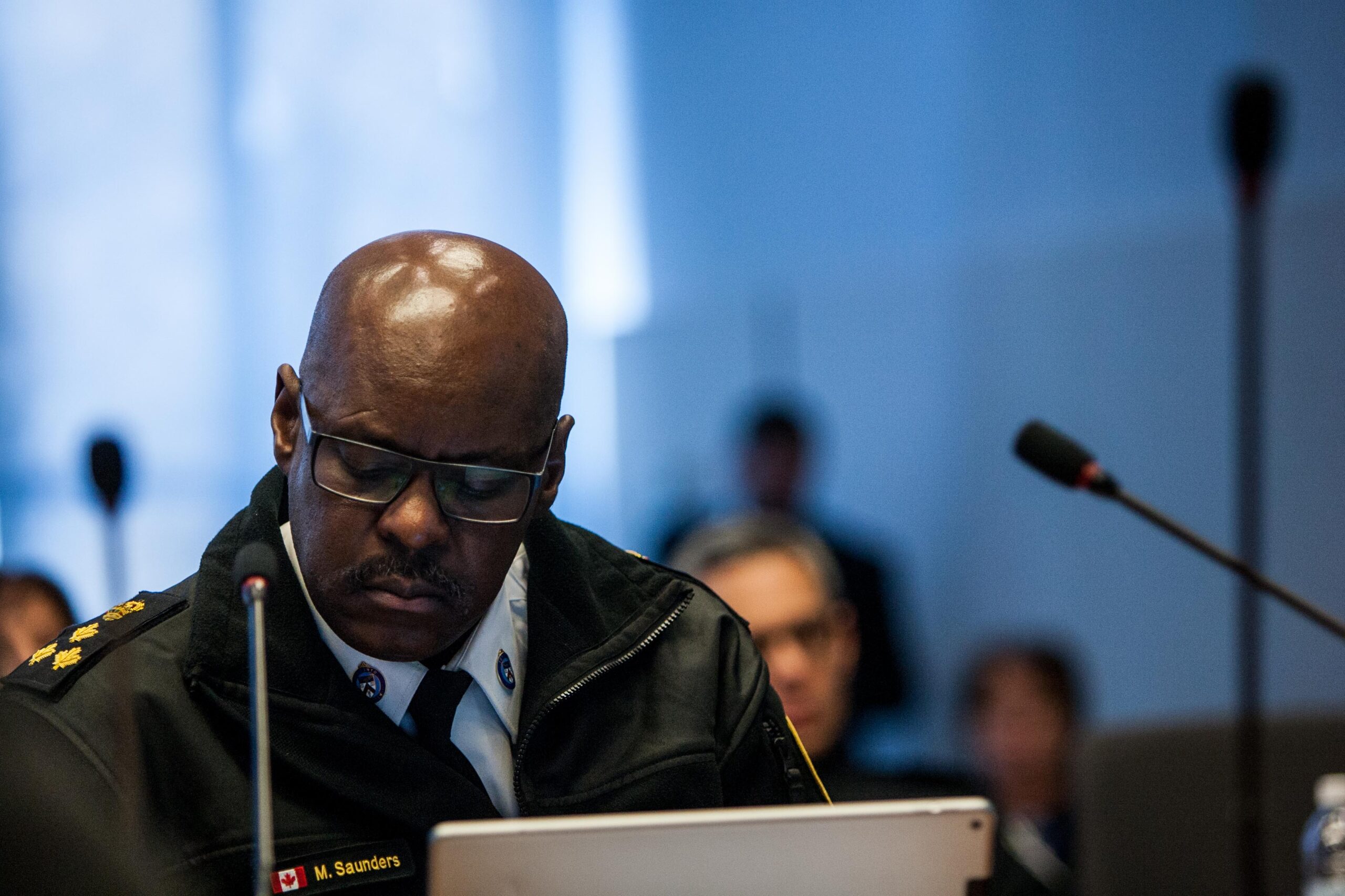A year ago, a handful of Toronto city councillors were arguing vociferously that Pride Toronto should lose its funding unless it allowed uniformed police to march in the parade.
This year, we haven’t heard a peep.
It looks as if funding for the parade, as part of the city’s funding for major cultural organizations, will pass unimpeded when it goes up before city council later this month.
And that’s because the rest of the city has learned what many LGBT Torontonians, and other marginalized people, had been saying for a long time — this city has a problem with policing.
Think about what we’ve seen in the last few months. Torontonians witnessed the families of Alloura Wells and Tess Richey being treated with a level of disrespect that boggles the mind. We continue to learn names of the victims of Toronto’s worst ever alleged serial killer and wonder how high the body count will climb. The chief of police himself went to the press and said that if sexual assault victims had come forward, Bruce McArthur could have been arrested sooner (they did and he wasn’t).
But despite all of these revelations, the mantra from core police supporters and much of the national media (though that may be a distinction without a difference) remains consistent: “Pride Toronto is the problem. Not only should the police be allowed to march, they should be allowed to do so on their exact terms.”
While it remains mystifying to me how willing Canadian journalists, tasked with holding power to account, continually prostrate themselves in front of one of Toronto’s most powerful institutions, what’s more damning is their total aversion to facts on this story.
Take CTV’s Lisa LaFlamme, the anchor of Canada’s most popular news broadcast, opening a segment last month on the conflict between Pride Toronto and the police.
“An event that prides itself on welcoming every man, woman and child today made a point of banning again one segment of the population in particular, the police,” she said, incorrectly implying that Pride Toronto has ever banned the police.
(Police can march in the parade, even wearing t-shirts that identify themselves as cops, as long as they’re not in uniform, with weapons or police vehicles).
And then LaFlamme gets worse.
“Last year, uniformed officers couldn’t march in Toronto’s Pride parade because they were blacklisted by black activists. This year, it’s the gay community itself that shut the door”
It’s a clever bit of wordplay that hides an ugly sentiment — Black activists and the gay community are different. Nevermind the fact that Black Lives Matter Toronto was led by LGBT people or that an overwhelming majority of Pride Toronto’s membership backed their demands.
But Olivia Nuamah, the executive director of Pride Toronto, doesn’t see it that way. For her, there’s a clear line between Black Lives Matter Toronto’s protest during the 2016 Pride parade and police indifference we’re seeing today.
“I’m really keen to make the connection between what’s happening with Bruce McArthur now and the conversation Pride was having two years ago,” she told me after the police decided to withdraw their application to march in this year’s parade. “When Black Lives Matter were stopping the parade, they were stopping the parade on the basis that the treatment that all LGBTQ communities were receiving was not equal and was not fair.”
But the simple fact remains that police can march in the parade whenever they choose, as long as they do it out of uniform. They could even do so wearing t-shirts with “Toronto police” emblazoned in big, bold letters.
So why don’t they? Why is the uniform so absolutely necessary?
If Saunders and the Toronto police were simply less intransigent, they could have marched last year and this year.
What’s clear is that if there is going to be any form of reconciliation between Pride Toronto and the police, it’s the latter that will have to swallow some of its pride.

 Why you can trust Xtra
Why you can trust Xtra


